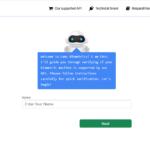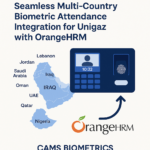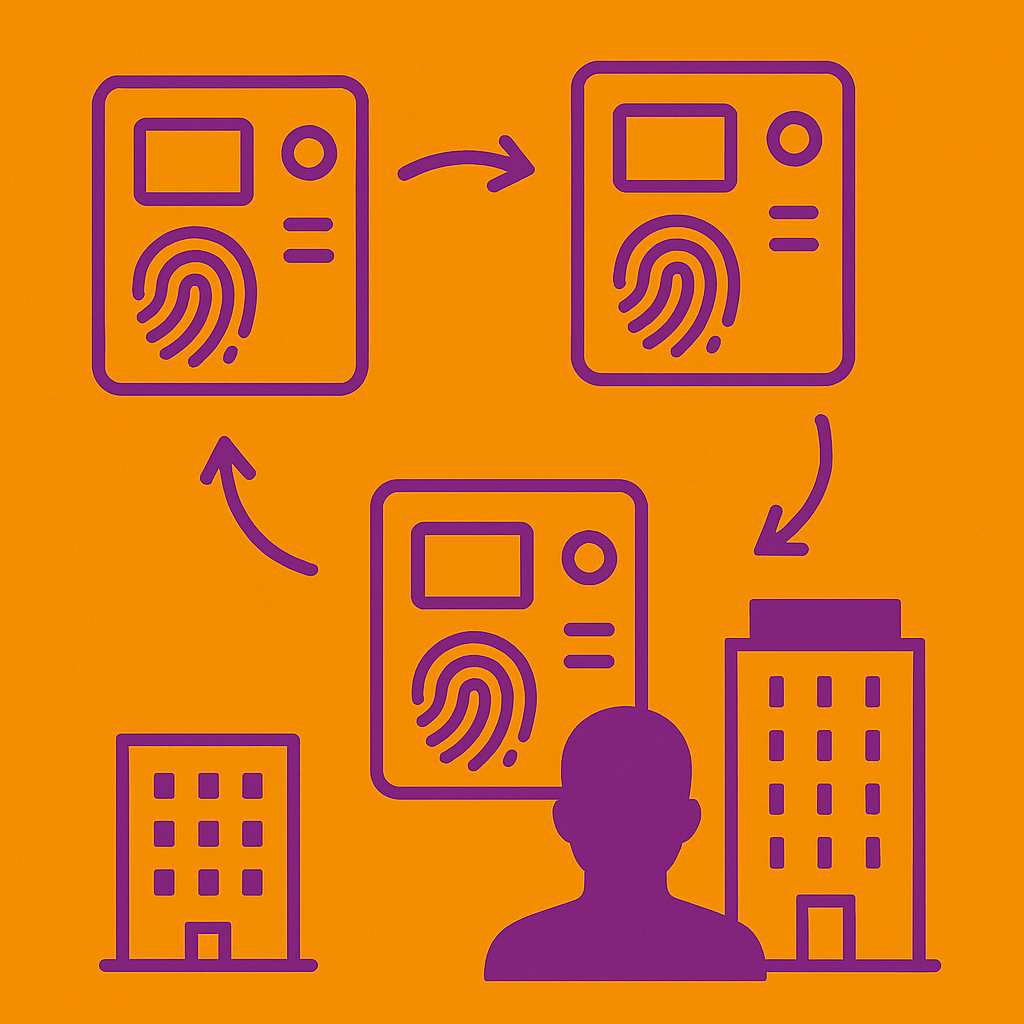In the rapidly evolving landscape of biometric technology, the integration of APIs plays a crucial role in determining the efficiency, security, and scalability of systems. The Cams Biometric API represents a significant advancement over traditional methods of biometric integration, offering a host of features that enhance user interaction and system manageability. Below, we explore how this modern API stands out from traditional approaches.
| S.No | Feature | Cams Biometric API | Other Brands’ API |
|---|---|---|---|
| 1 | Real Time Attendance Data Push | 🟢 ✔️ | 🔴 ❌ |
| 2 | Two Way Communication | 🟢 ✔️ | 🔴 ❌ |
| 3 | User Management from Account | 🟢 ✔️ | 🔴 ❌ |
| 4 | Restricting User Access Timeline | 🟢 ✔️ | 🔴 ❌ |
| 5 | Enable User or Disable User | 🟢 ✔️ | 🔴 ❌ |
| 6 | Add User or Delete User | 🟢 ✔️ | 🔴 ❌ |
| 7 | Resend User Data to Server | 🟢 ✔️ | 🔴 ❌ |
| 8 | Resend Attendance to Server | 🟢 ✔️ | 🔴 ❌ |
| 9 | Automatic User Replication Across Devices | 🟢 ✔️ | 🔴 ❌ |
| 10 | Facilitating User Self-Management feature | 🟢 ✔️ | 🔴 ❌ |
| 11 | API for developing web/server application | 🟢 ✔️ | 🔴 ❌ |
| 12 | SDK for developing desktop application | 🔴 ❌ | 🟢 ✔️ |
| 13 | Local/Cloud Computer Dependency | 🔴 ❌ | 🟢 ✔️ |
| 14 | Periodic Data Push | 🔴 ❌ | 🟢 ✔️ |
| 15 | Local Database or Software Dependency | 🔴 ❌ | 🟢 ✔️ |
| 16 | Pull Technology | 🔴 ❌ | 🟢 ✔️ |
| 17 | Router and Port Forwarding Dependency | 🔴 ❌ | 🟢 ✔️ |
1. Enhanced User Management Capabilities
The Cams Biometric API offers robust options for managing user accounts that are absent in traditional APIs. Features such as real-time attendance data push, enabling and disabling users, and even restricting user timelines provide administrators with greater control over how and when users interact with the system. Unlike traditional methods, Cams Biometric API allows for automatic user replication across devices, emphasizing its scalability and user-centric design.
2. Cloud Application Development
Our highly proficient API facilitates the development of cloud applications, moving beyond the traditional approach of developing desktop applications that pull data from local databases and push it to the server. Cams API ensures two-way communication between your server application and the biometric machine, enabling real-time data push to your server and managing various user operations on the biometric device directly from the server application. Unlike SDKs, which have a high dependency on local computers and are not suited for developing cloud applications, our API provides the flexibility and scalability needed for modern cloud solutions.
3. Advanced Communication and Data Handling
Unlike traditional APIs, which lack interactive communication capabilities, the Cams Biometric API supports two-way communication. This feature not only facilitates a dynamic exchange of information but also ensures that any discrepancies in data are handled promptly and efficiently. Moreover, features like resending user data and resending attendance to the server are exclusively available with the Cams Biometric API, further enhancing its reliability and functionality in real-time environments.
4. Reduced Dependency on Local Infrastructure
One of the critical advantages of the Cams Biometric API over traditional methods is its independence from local or cloud computing dependencies. This independence from specific hardware or cloud services means that the Cams Biometric API can operate more flexibly and cost-effectively, reducing the overall infrastructure burden on organizations.
5. User Empowerment Through Self-Management
The Cams Biometric API empowers users by allowing self-management capabilities. Users can manage their profiles, which is a stark contrast to traditional APIs where user management is typically centralized and does not provide users direct control over their data or access settings.
6. Minimizing Network Configuration Requirements
Traditional APIs often require complex network configurations, including router settings and port forwarding. The Cams Biometric API eliminates these needs, simplifying the installation process and reducing the potential for configuration errors that could compromise system security.
Conclusion
The Cams Biometric API clearly differentiates itself from traditional biometric integration methods by offering a more interactive, scalable, and user-friendly approach. Its independence from local or cloud dependencies, combined with powerful user management and data synchronization features, positions it as a superior choice for organizations looking to leverage the latest in biometric technology. This modern API not only simplifies the management of biometric data but also enhances the security and efficiency of the systems it integrates with, making it a pivotal tool in the future of biometric applications.












We want this device Cams Biometric API for Biometric Integration API Quantity 1
Thank you for your interest in the Cams Biometric API for biometric integration.
You can find all the necessary details, including pricing, integration steps, and available packages, at the following link:
https://camsbiometrics.com/application/biometric-web-api.html
This page covers everything you need, including quantity-based pricing and a video walkthrough for quick understanding.
For placing an order or if you have specific requirements regarding quantity or integration, please contact us directly:
sales@camsbiometrics.com
WhatsApp: +91-98409-41006
We’ll be glad to assist you further.